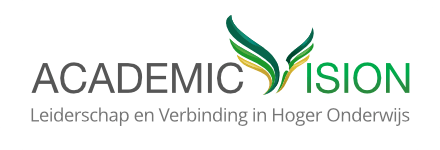Taking on the world like Atlas

Past months I had the honour of teaching the course Personal Effectiveness and Time Management at the Academy of Architecture. The students at the Academy combine a 32 hour workweek with 20 hours of study and a private life of course. They are very ambitious and tend to take on a lot of responsibility. So many of them struggle with keeping up and maintaining their energy.
The challenge of making choices
In my view personal effectiveness is all about making choices. It starts with being aware of your personal goals and your strengths. When you know where you are heading and what can help you get there, it is already much easier to choose what to work on first, to get started and actually get things done, so you move towards your goals.
In the course I firstly support the students to take a step back and become aware of their desires and personal goals. This often confuses them a bit. For many it is a new perspective to look at what is important FOR them, instead of what is asked or expected FROM them.
Once they have clarity on their personal goals and desires, the next step is to choose how to work on them. We go over multiple tools and methods for planning, organising and prioritising, like the Eisenhower Matrix and my favourite: Getting Things Done. This method by David Allen focusses on getting all tasks organised and out of your mind, so you create space to actually get them done. As Allen says:
The more it’s on your mind, the more it’s not happening
Besides choosing what goals to strive for and how to work on them, personal effectiveness is also about choosing activities that increase energy and decrease stress. Did you know exercise makes you more resilient to stress for example? According to a Princeton research physical activity reorganises the brain in such a way that its response to stress is reduced and anxiety is less likely to interfere with normal brain function.
From the students
Today I am reading their final reports. This always reminds me of why I love teaching this course so much. I am impressed by the awareness the students show, after just three classes. A couple of things I read back in their final reports:
“The appreciation was one of the first things that affected me and my life style. Appreciating the people around me and what they do for me was always a habit, but appreciating myself was not in my dictionary. Now I learned how to appreciate what I am doing and how far I have become in reaching even the smallest goals.”
“In general, I feel more detached to the work and studies. “Detached” in a good way, because I used to feel responsible for everything like the statue of Atlas. Therefore, I felt overwhelmed by the amount of work and by the pressure on my neck. Today, I am less stressed than before and I know that meditation or walk in the park will help me if stress symptoms come back.“
“The best way to describe how it affected me is to say that: I am more aware of what I do, what I want, and have more tools to get there or to do it. I know more about myself, my skills and faults and ways to figure out how to deal with that.”
Feeling guilty
What stands out to me is that it’s not the practical time management tips that are most valuable to them (although that often is what they sign up for). More often it is the realisation that focussing on their own desires, appreciating what they already have and taking some time off is not something to feel guilty about.
And I completely agree with them. On the contrary: recharging yourself is super important and useful to be productive as research shows. It gives you energy and empties your mind, so that afterwards you are more creative and have better focus.
A tip to recharge
If you feel stressed or overwhelmed today and I could give you one tip, it would be:
Go outside for 30 minutes, walk in silence by yourself and note all the beautiful things you see around you. I bet you will feel better already afterwards and more energised to continue working!
Anneke Dekker
Coach and facilitator Academic Vision
